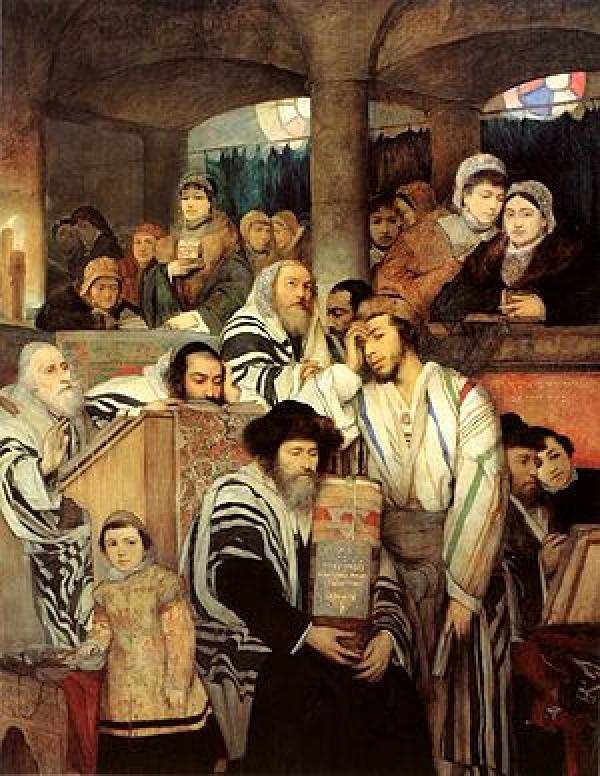Also known as Day of Atonement, is the holiest day of the year for the Jewish people. Its central themes are atonement and repentance. Jewish people traditionally observe this holy day with an approximate 25-hour period of fasting and intensive prayer, often spending most of the day in synagogue services.
Yom Kippur is "the tenth day of [the] seventh month" (Tishrei) and also regarded as the "Sabbath of Sabbaths". Rosh Hashanah (referred to in the Torah as Yom Teruah) is the first day of that month according to the Hebrew calendar.
Yom Kippur completes the annual period known in Judaism as the High Holy Days or Yamim Nora'im ("Days of Awe") that commences with Rosh Hashanah.
Yom Kippur falls each year on the 10th day of the Jewish month of Tishrei, which is 9 days after the first day of Rosh Hashanah. In terms of the Gregorian calendar, the earliest date on which Yom Kippur can fall is September 14, as happened in 1899 and happened again in 2013. The latest Yom Kippur can occur relative to the Gregorian dates is on October 14, as happened in 1967 and will happen again in 2043. After 2089, the differences between the Hebrew calendar and the Gregorian calendar will result in Yom Kippur falling no earlier than September 15.
The Torah calls the day Yom HaKippurim and in it Leviticus 23:27 decrees a strict prohibition of work and affliction of the appetite upon the tenth day of the seventh month, later known as Tishrei.
Yom Kippur is a legal holiday in the modern state of Israel. There are no radio or television broadcasts, airports are shut down, there is no public transportation, and all shops and businesses are closed. In 1973, an air raid siren was sounded on the afternoon of Yom Kippur and radio broadcasts were resumed to alert the public to the surprise attack on Israel by Egypt and Syria that launched the Yom Kippur War.
In 2008, 63% of the Jewish people of Israel said that they were intending to fast on Yom Kippur. This is the reason that it is very common in Israel to wish "Tsom Kal" (an easy fast) or "Tsom Mo'iil" (a benefiting fast) to everyone before Yom Kippur, even if one does not know whether they will fast or not.
It is considered impolite to eat in public on Yom Kippur or to sound music or to drive a motor vehicle. There is no legal prohibition on any of these, but in practice such actions are universally avoided in Israel during Yom Kippur, except for emergency services.
Over the last few decades, bicycle-riding and inline skating on the empty streets have become common among secular Israeli youngsters, especially on the eve of Yom Kippur in Tel Aviv.

